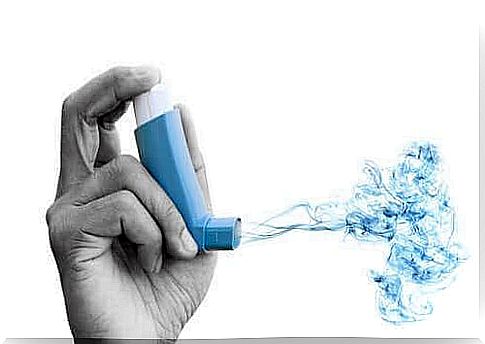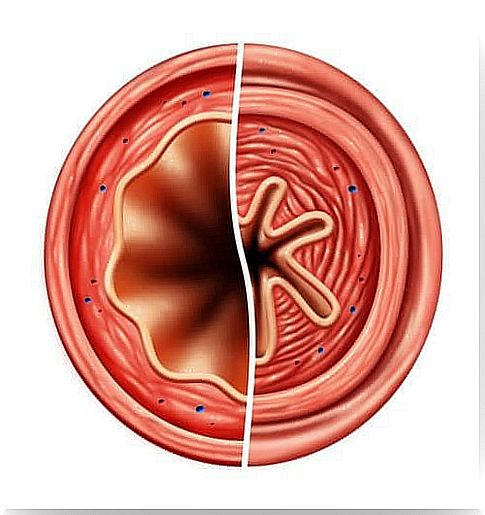Terbutaline: What Is It For?
Terbutaline is a drug widely used to treat asthma. Like all drugs on the market, it is not exempt from producing a series of side effects which must be taken into account when administering this drug. Improper use can have serious health consequences.

Terbutaline is a bronchodilator which belongs to the group of β2 adrenergic receptor agonists
For this reason, terbutaline is primarily indicated for the short-term treatment of asthma. However, it is also used to fight other diseases, such as those which obstruct the lungs, such as emphysema and chronic bronchitis.
The FDA has cleared terbutaline for use in children of all ages because it exists in liquid form for administration as an aerosol nebulizer.
Out of curiosity, it is a drug that can be tested positive during doping controls. In addition, it can also cause cardiac arrhythmias, such as atrial fibrillation, supraventricular tachycardia and extrasystoles. However, we will look at its harmful effects in more detail later in this article.
How does asthma start?

It is important to know, although in general terms, the main pathology for which terbutaline is indicated. In this way, it will be possible to better understand the mechanism of action and the characteristics of the drug.
In this sense, asthma is a disease of the upper respiratory tract. During this state, the bronchi narrow and become inflamed. Therefore, the patient has difficulty in breathing. He may wheeze, cough, or have a severe lack of oxygen.
The causes of this disease are not clearly identified. Experts agree that environmental and genetic factors are likely to be involved in the development of this disease.
In addition, exposure to a number of factors makes asthma worse. However, these triggers vary from person to person, as does the severity of symptoms. The most common irritants and triggers are:
- Pollen, mites and animal hair
- Sport
- Cold air
- Stress and anxiety
- Certain foods and medications
How does terbutaline affect the body?
As mentioned above, terbutaline is an agonist of β2 adrenergic receptors, with negligible effects on α receptors.
Activation of β2 receptors triggers, among other actions, bronchodilation. As the lung contains a large number of these receptors, terbutaline produces a potent bronchodilation which justifies its indication for episodes of asthma.
On the other hand, it is important to keep in mind that this drug can trigger tolerance in the patient who uses it. Continued use of β2 agonists for a period of 12 months or more has been shown in clinical trials to accelerate deterioration of the respiratory system in patients with asthma.
On the other hand, terbutaline also has effects on the heart, as the heart also has many β2 receptors. For this reason, this drug, like all β2 agonists, is cardiostimulant. However, terbutaline is a drug specifically used to try to reverse recurrent attacks of bronchial asthma and acute bronchospasm.
Adverse effects of terbutaline

Like all medicines on the market, terbutaline is not free from a number of side effects which should be taken into account when administering it.
Improper use can have serious health consequences. Therefore, you should always follow the instructions given to you by both the doctor and the pharmacist and always tell them about any discomfort you experience when you start treatment with this medicine.
Regarding the side effects that treatment with β2 agonists usually triggers, as is the case with terbutaline, we can mention that the most common are:
- Tremors
- Headache or headache
- Dizziness
- Agitation
- Tachycardia and palpitations
- Muscle cramps
On the other hand, bronchospasm can also occur, although paradoxically. If this happens, another bronchodilator should be given immediately.
Conclusion
Terbutaline is a drug widely used to treat asthma. It is a bronchodilator which owes its effectiveness to its ability to stimulate β2 receptors located in the lungs.
However, since these receptors are also found in other organs, terbutaline may also trigger other side effects which, although expected, should be taken into account when starting treatment with this medicine.









